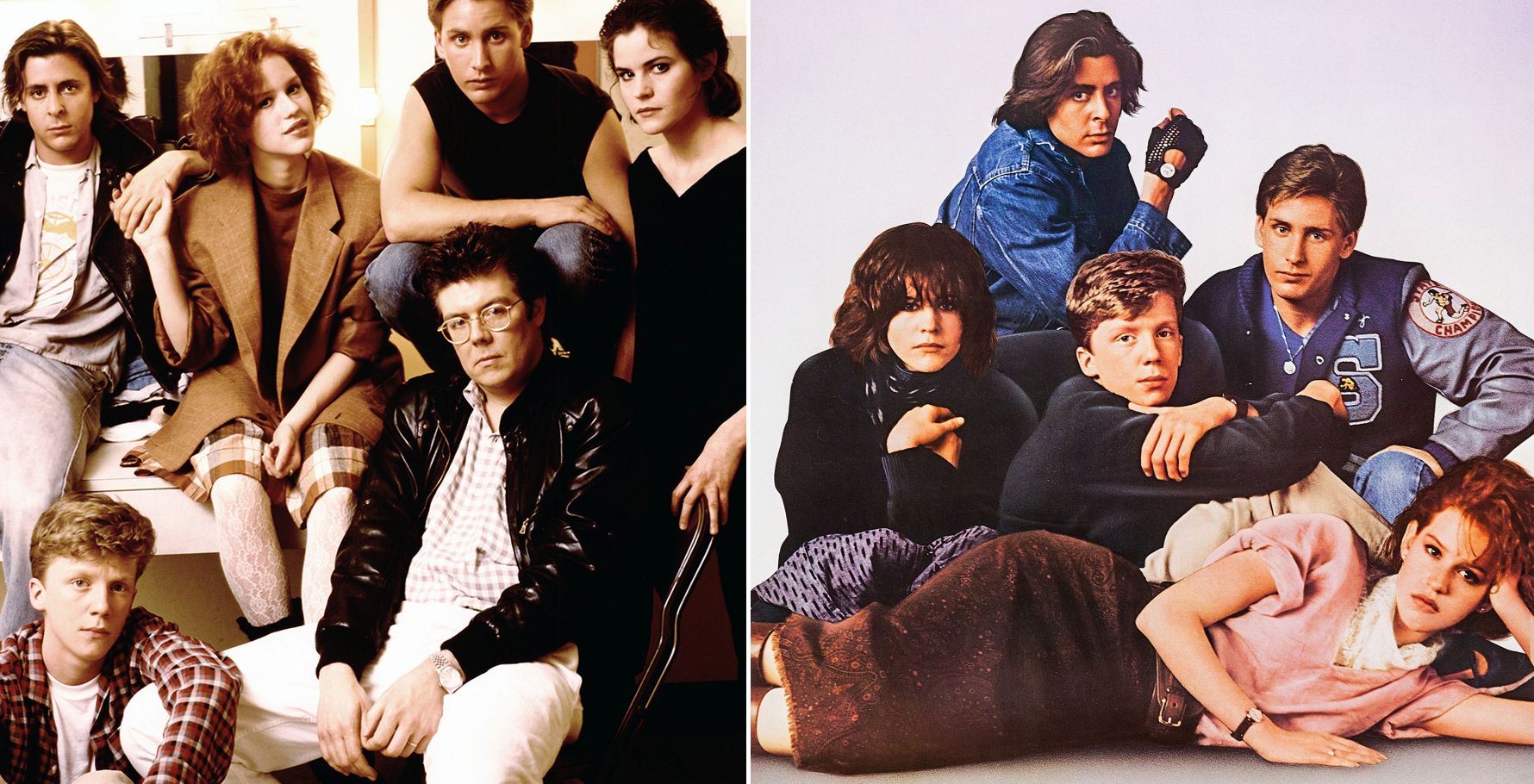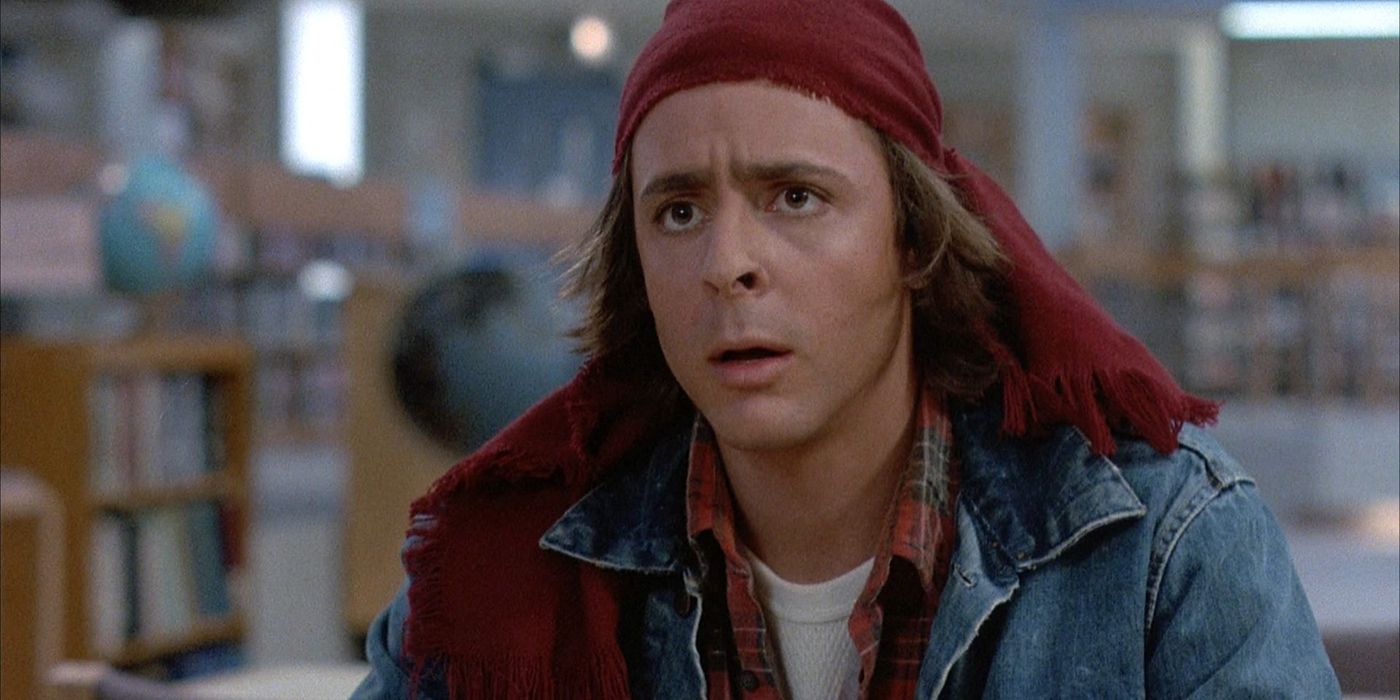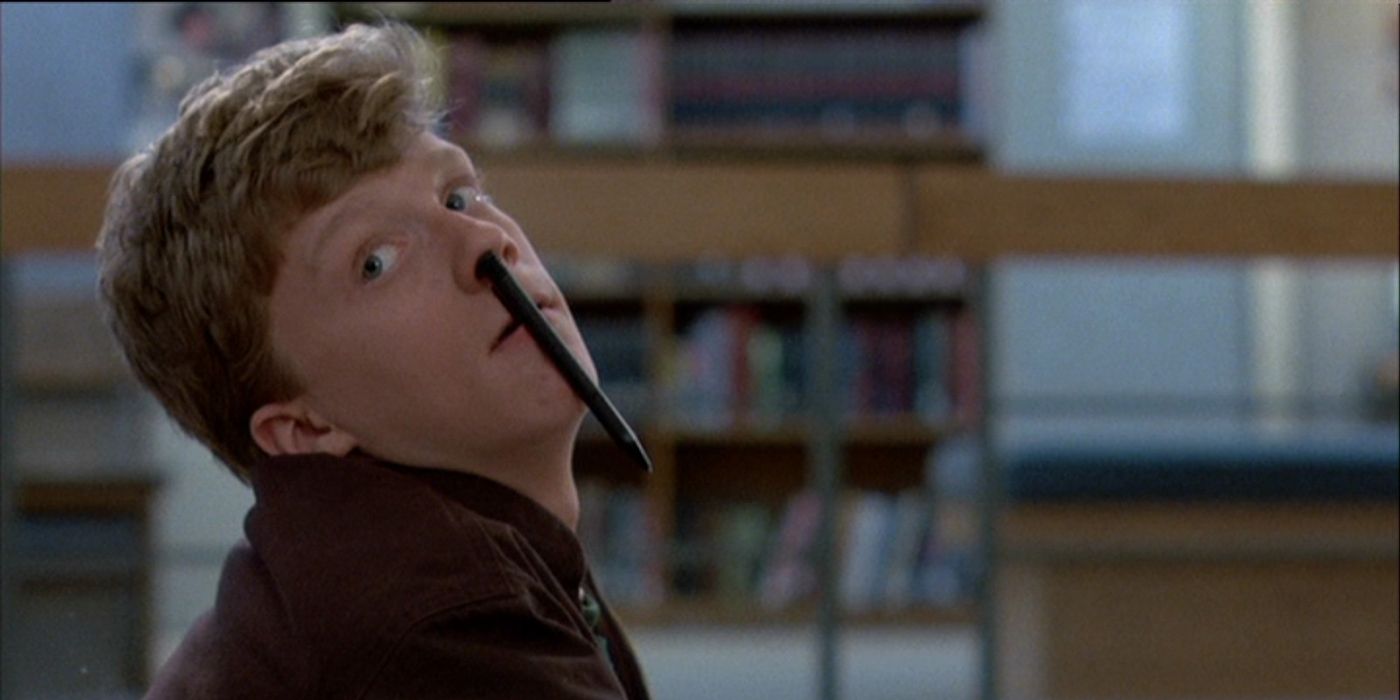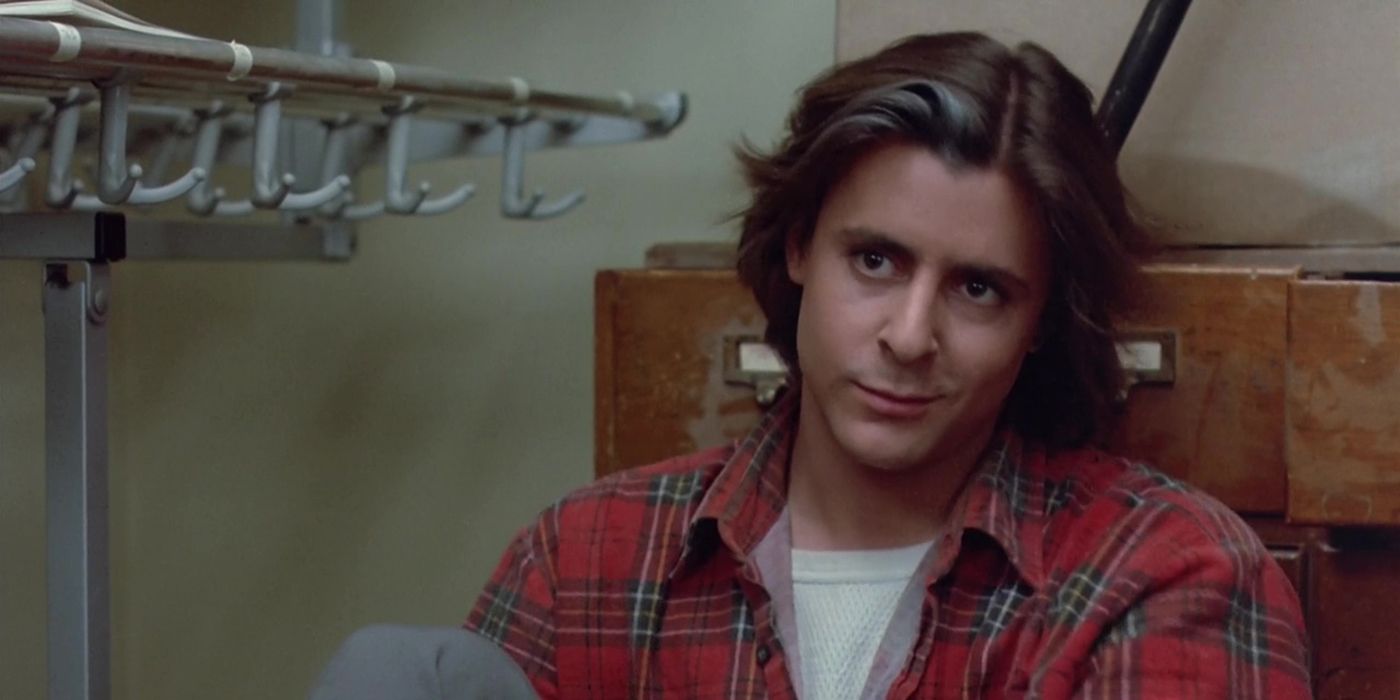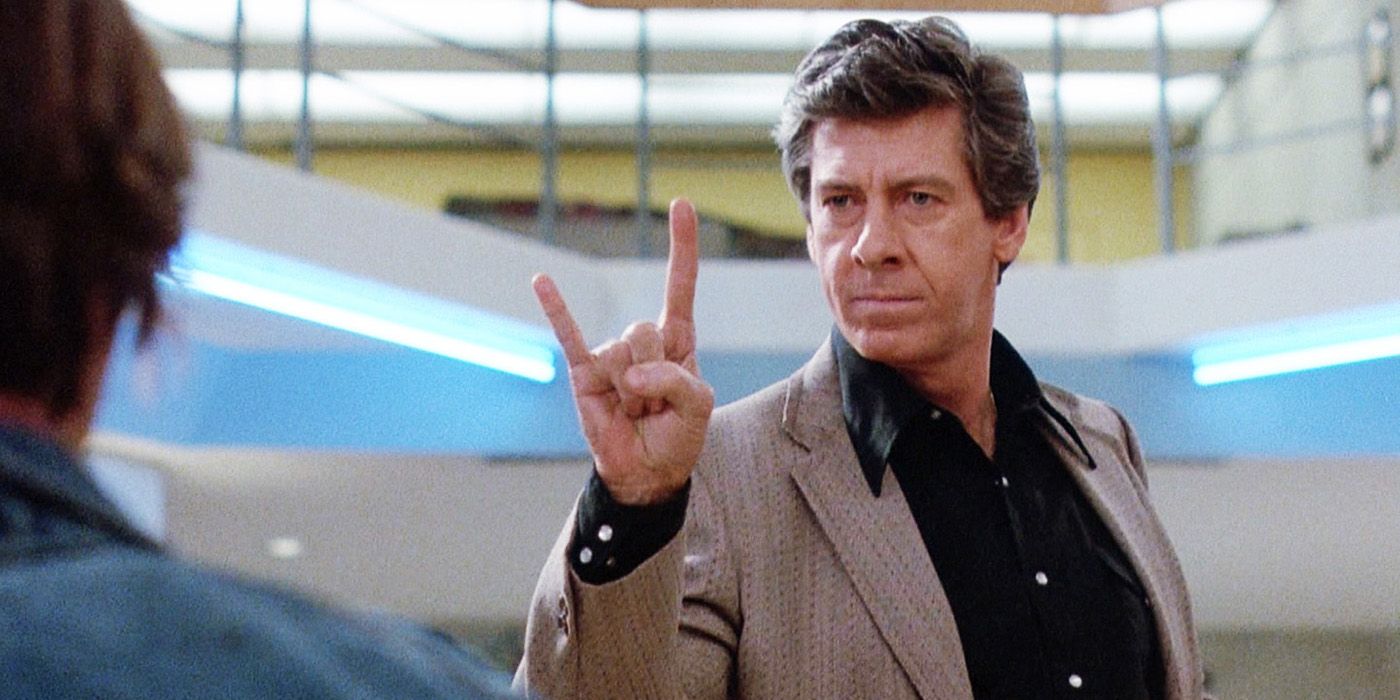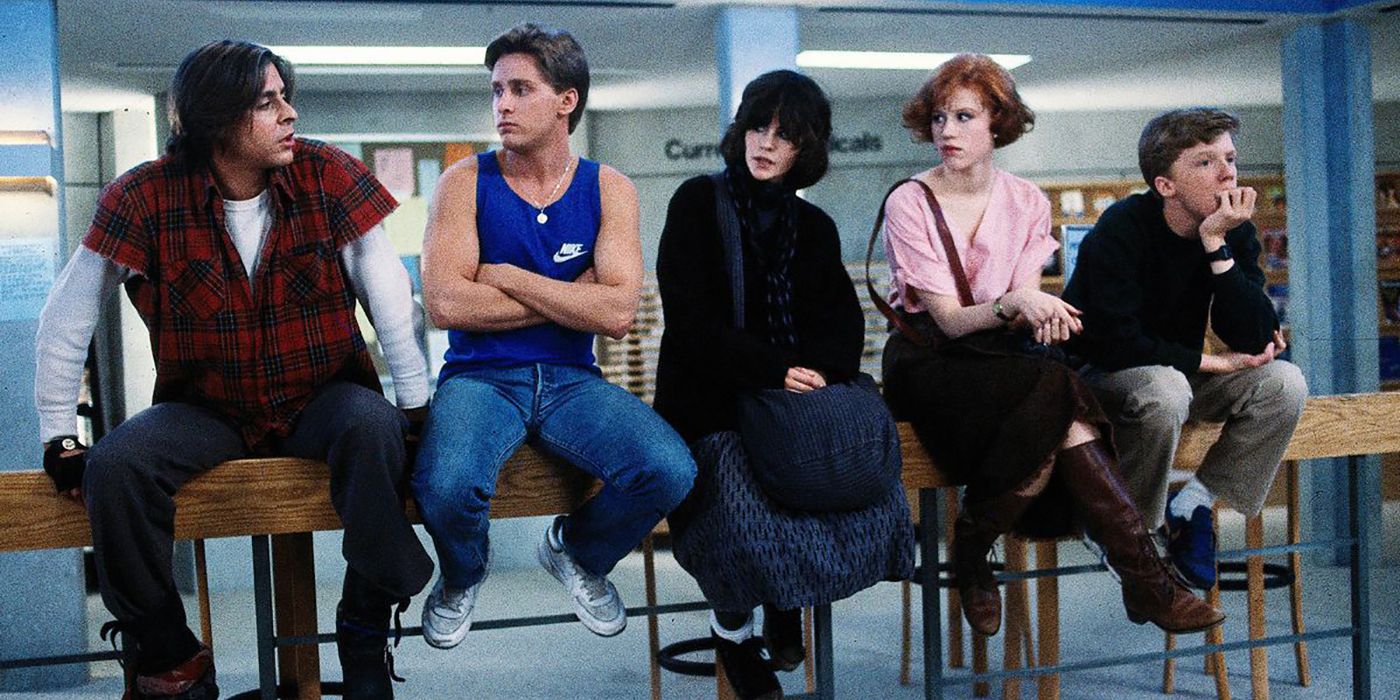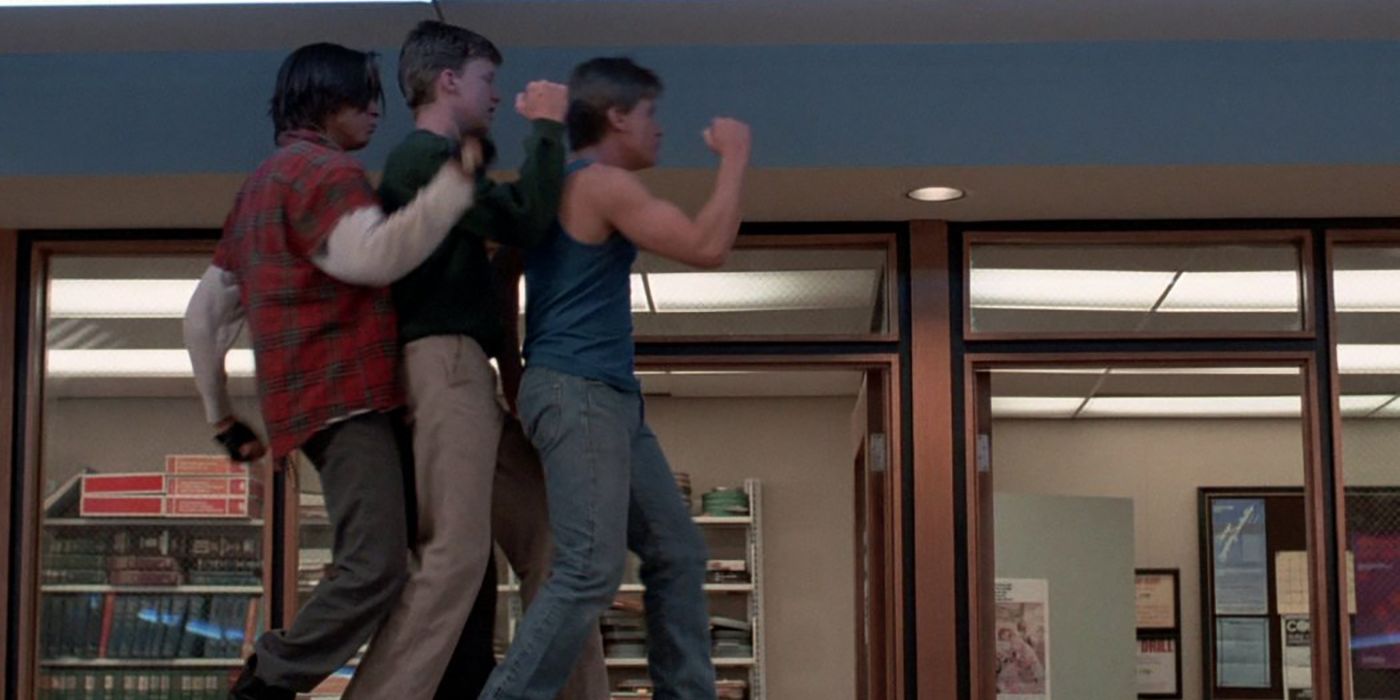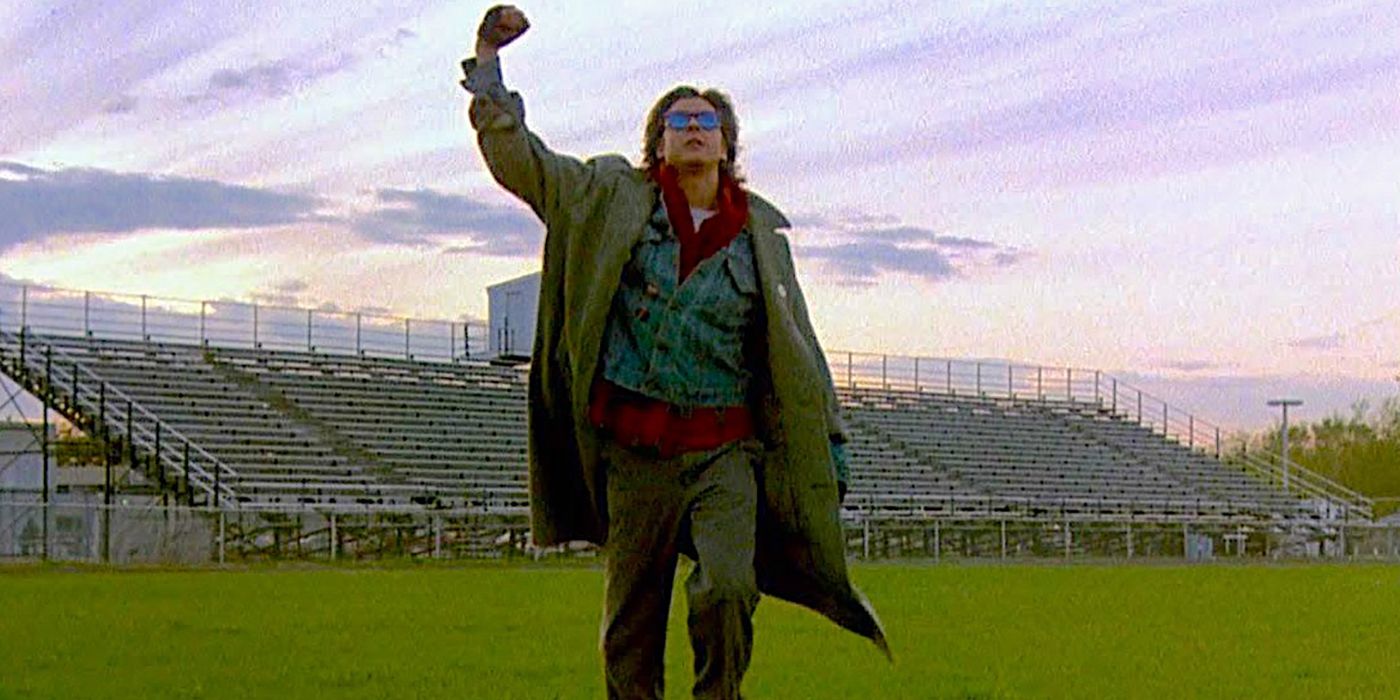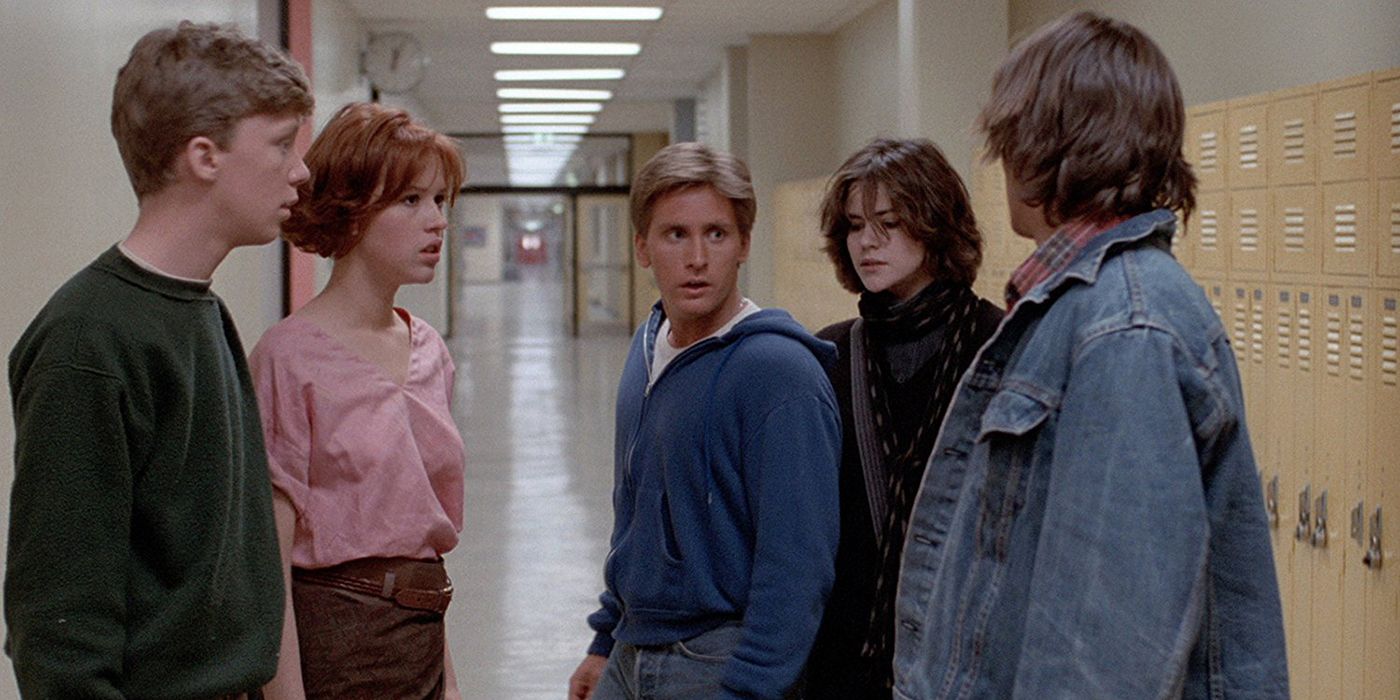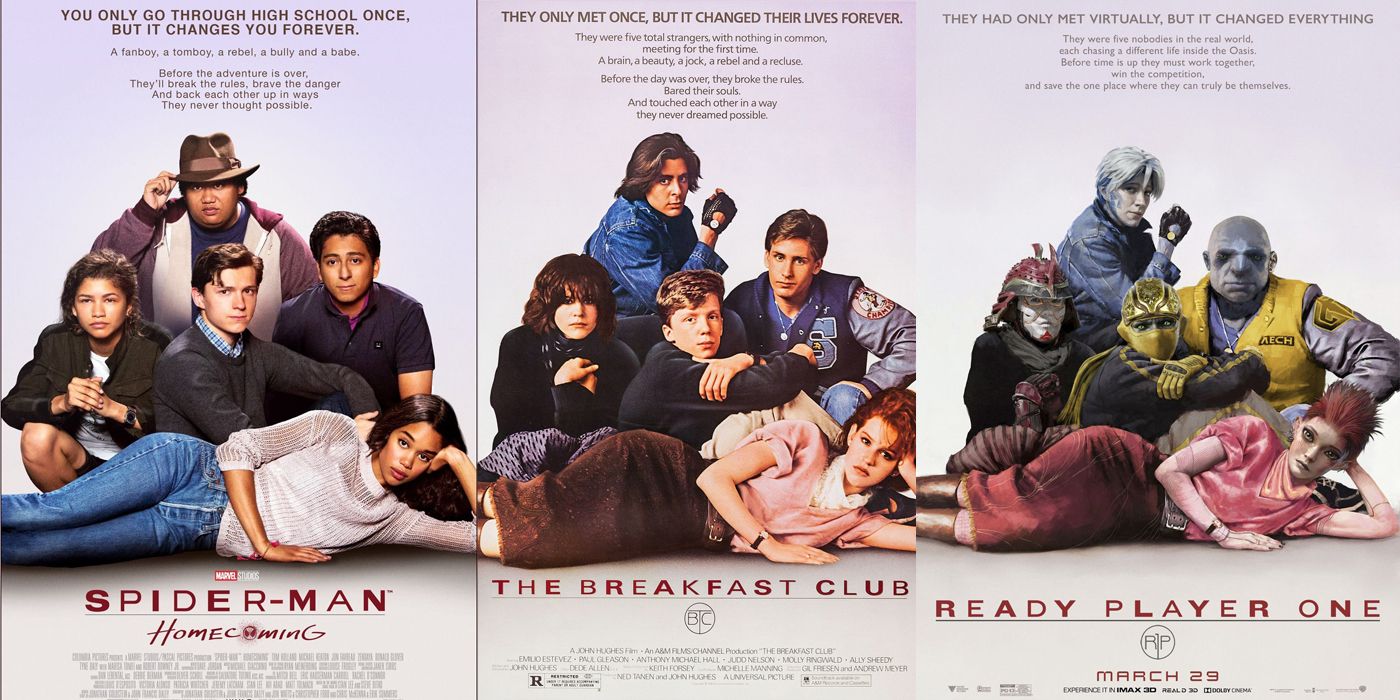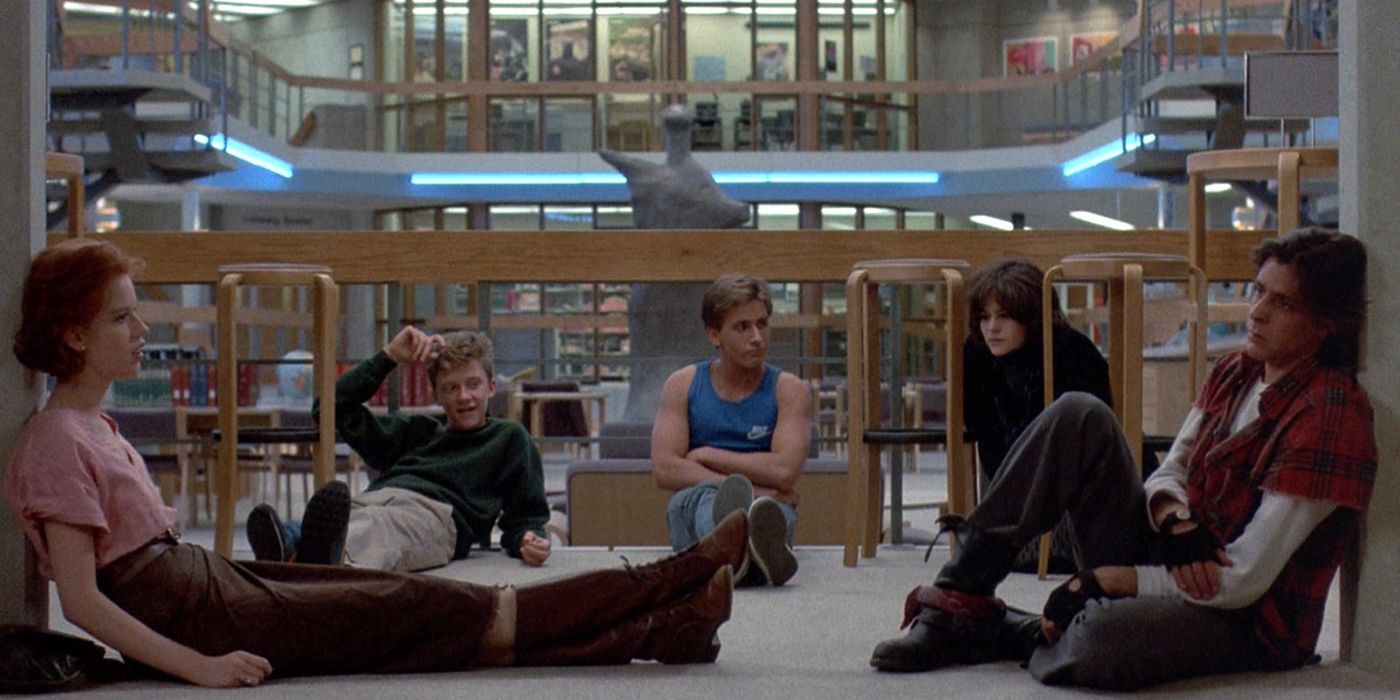Written, produced, and directed by John Hughes, The Breakfast Club is a 1985 movie that stars five members of the 1980s iconic Brat Pack: Judd Nelson as John Bender, Molly Ringwald as Claire Standish, Emilio Estevez as Andrew Clark, Anthony Michael Hall as Brian Johnson, and Ally Sheedy as Allison Reynolds. These five students, who represent the five archetypes – the criminal, the princess, the athlete, the brain, and the basket case – are forced to spend a Saturday in detention under the strict supervision of Principal Vernon.
This quintessential 80s movie defined generations of teenagers and still stands as one of the most influential coming-of-age films ever made. It's a timeless classic that keeps popping up in pop culture, as many other movies and TV shows often reference it. Plus, many of us reference it regularly in our everyday lives. Today, we list the ten best pop culture references created by The Breakfast Club.
"EAT MY SHORTS."
The Breakfast Club is an insanely quotable movie. We could spend the whole day quoting the most memorable lines, re-enacting parts of the film, and discussing the best zingers. One of Bender’s many hilarious and creative comebacks, “eat my shorts,” is certainly one of the movie’s most memorable one-liners.
This euphemism for “eat my s**t” is also famous for being Bart Simpson’s catchphrase on The Simpsons, but Bender actually used it first. In the Futurama episode “A Big Piece of Garbage,” the robot Bender (who was named after John Bender) finds a Bart Simpson doll that says “eat my shorts” and Bender obliges.
"NEO-MAXI-ZOOM-DWEEBIE"
It is a well-known fact that a lot of the dialogue from The Breakfast Club was ad-libbed. Judd Nelson, who portrayed Bender, ad-libbed the now-infamous insult “neo-maxi-zoom-dweebie”. In the scene where the group starts getting to know each other by talking about their parents, Bender calls Brian “a parent’s wet dream,” adding: "Face it, you're a neo-maxi-zoom-dweebie. What would you be doing if you weren't out making yourself a better citizen?"
To this day, we have no idea where the “zoom” came from, but this insult, coined by Nelson, is often used to describe the ultimate nerd.
“YOU KNOW WHAT I GOT FOR CHRISTMAS?”
During the group therapy scene, as it’s become known, Bender has yet another one of his violent outbursts and takes it out on Claire. Frustrated with Claire for crying, even though, from his point of view, she has everything and he has nothing, Bender gives us an insight into his life, namely his relationship with his father: "You know what I got for Christmas this year? It was a banner f****n' year at the old Bender family! I got a carton of cigarettes. The old man grabbed me and said ‘Hey! Smoke up Johnny!’"
In the first episode of Community, which is an homage to The Breakfast Club and dedicated to John Hughes, Abed Nadir basically re-enacted Bender's speech to interrupt an argument that had broken out between members of the study group. The line was also said in Family Guy by Tony the Tiger.
“DON’T MESS WITH THE BULL, YOUNG MAN. YOU’LL GET THE HORNS.”
"Mess with the bull, get the horns." You have probably heard this one before, whether it’s from someone in your life or from a fictional character. And while The Breakfast Club did not coin this phrase, it is a widely recognized fact that it popularized it. The line is said by Principal Vernon to Bender as a response to another memorable line: “Does Barry Manilow know that you raid his wardrobe?”
The phrase has since been referenced by movies like Easy A, The Pacifier, and Veronica Mars, as well as TV shows like Suits, NCIS, and Everybody Loves Raymond.
A BRAIN. AN ATHLETE. A BASKET CASE. A PRINCESS. A CRIMINAL.
While The Breakfast Club certainly didn’t invent these five stereotypes commonly found in high schools, and, by extension, fictional stories set in high schools, it did popularize these terms. The movie takes a deep dive into these five archetypes and deconstructs them in order to look beyond the superficial, which is why it’s had such an impact on cinema, pop culture, and its audience. In his essay, Brian writes: "You see us as you want to see us—in the simplest terms, in the most convenient definitions. But what we found out is that each one of us is a brain...and an athlete...and a basket case...a princess...and a criminal."
While times certainly have changed since The Breakfast Club came out, these five archetypes – whatever we decided to call them – appear to be timeless. TV shows like Cougar Town, One Tree Hill, and Deadly Class, just to name a few, have all made references to these types.
THE DANCE
One of the most iconic scenes from The Breakfast Club is the dance montage set to Karla DeVito’s "We Are Not Alone." After smoking some marijuana and having a heart-to-heart, the kids start running rampant around the library and performing various dance moves. The part when they take turns dancing on the railing is often used in other media to reference this John Hughes classic, as seen in Community, The Goldbergs, Cougar Town, and The Simpsons.
Interestingly enough, this iconic scene could have been entirely different. Namely, in the original script, only Claire was supposed to dance. However, when Molly Ringwald approached Hughes about her insecurities as a dancer, he changed the script.
THE FIST IN THE AIR
The final shot of a movie can determine how your audience leaves the theater. Hopeful? Sobbing? Overjoyed? But crafting a memorable ending, a final shot that will be talked about for decades, is challenging. The Breakfast Club has one of the most memorable final shots in movie history. As Simple Mind’s “Don’t You (Forget About Me)” plays in the background, Bender triumphantly thrusts his fist into the air, happy that he finally connected with someone.
This unforgettable moment has been referenced by numerous movies and TV shows. In Easy A, a movie that is chock-full of references to 80s movies, Emma Stone’s character, Olive, says this: “I want Judd Nelson thrusting his fist into the air because he knows he got me.” In the end, Todd (Penn Badgley) does indeed thrust his fist into the air when she agrees to go out with him. The fist in the air is also referenced in Pitch Perfect, Psych, and Unbreakable Kimmy Schmidt.
DON’T YOU (FORGET ABOUT ME)
It’s almost impossible not to think of Rocky when you hear Survivor’s “Eye of the Tiger,” or Back to the Future when Huey Lewis & The News’ “Power of Love” plays, or The Breakfast Club when you hear Simple Minds’ “Don’t You (Forget About Me).” It doesn’t come as a surprise, then, that Billboard included all of these songs in their top 50 movie songs of all time.
"Don't You (Forget About Me)" is pretty much a teenage anthem. The iconic song has been featured in countless movies and TV shows over the years, usually as a way of paying homage to John Hughes' classic teen movie. Here are just a few examples you can check out: Community, One Tree Hill, Pitch Perfect, and Easy A.
THE POSTER
The poster for The Breakfast Club is one of the most memorable movie posters of all time. The poster features the main characters huddled together and references the five “types” described in the film, using slightly different terms. It was photographed by the famous award-winning portrait photographer Annie Leibovitz, and it impacted the way teen films were marketed from then on.
Over the decades, various other movies, TV shows, comic books, and even anime have paid homage to The Breakfast Club by recreating the iconic poster. The reference-overdosed Ready Player One did it, the cast of Spider-Man: Homecoming (a movie strongly influenced by John Hughes films) did it, the cast of Wonder Woman 1984 did it, comics like Buffy the Vampire Slayer and Power Rangers did it, and Attack on Titan did it.
THE CONCEPT
The Breakfast Club is essentially a bottle movie. The story takes place in Shermer High School, for the most part in the school library. The library is where the most important parts of the story happen. Those include the group therapy scene, the dance montage, and the lunch scene, among many others.
This concept of a group of teenagers, or sometimes grown-up people, being confined in a place like a library, a classroom, a study room, or whatever, forced to interact and connect, is often used in other media to reference The Breakfast Club. We’ve seen this done in Spider-Man: Homecoming, Deadly Class, Riverdale, One Tree Hill, Blindspot, Dawson's Creek, The Vampire Diaries, Avatar: The Last Airbender, and so on. It's an instantly recognizable visual clue.

